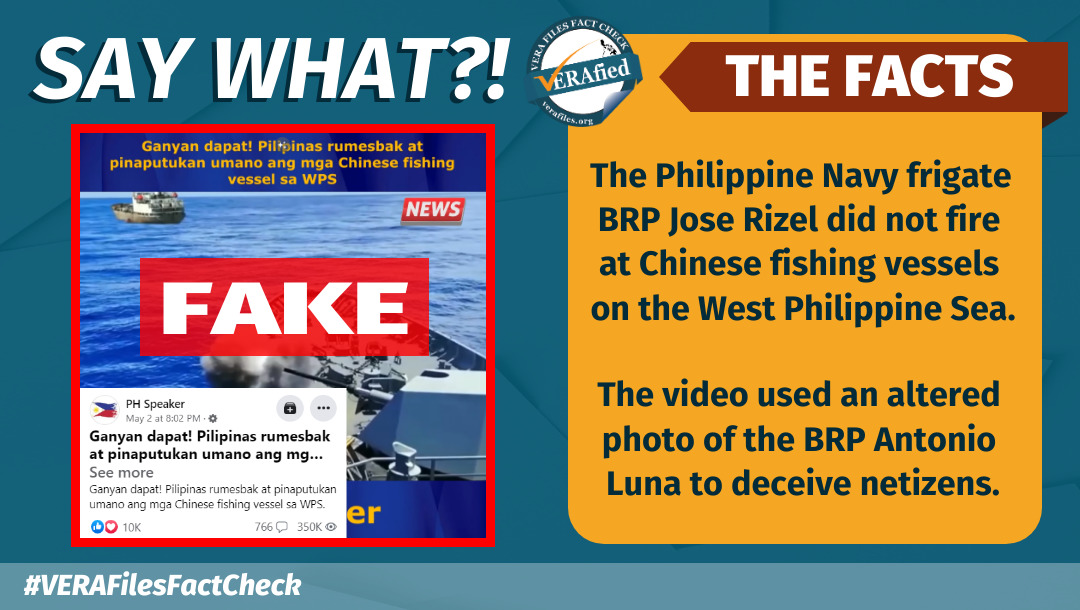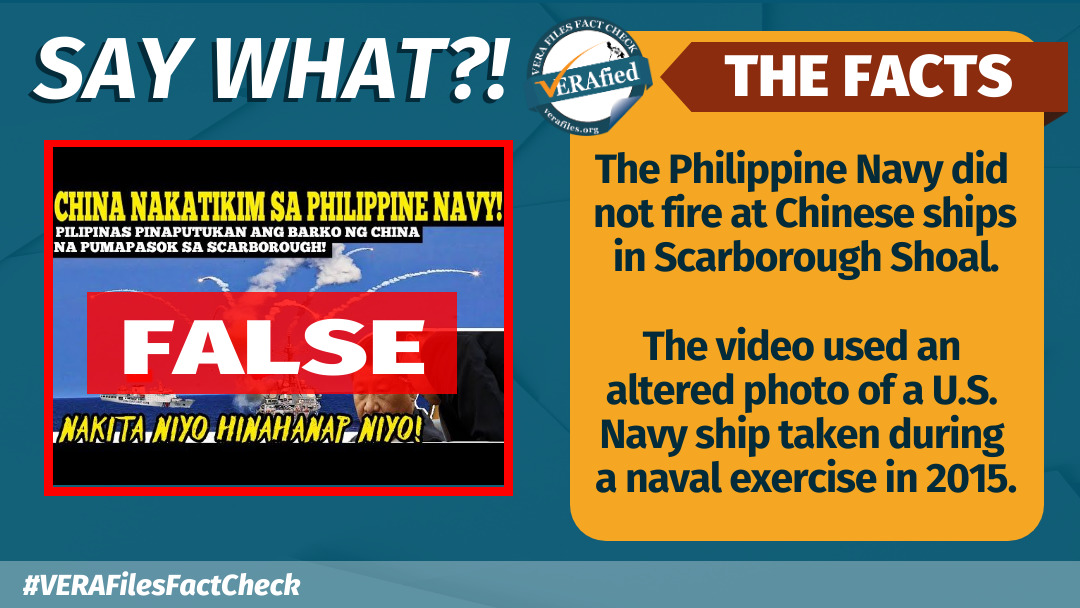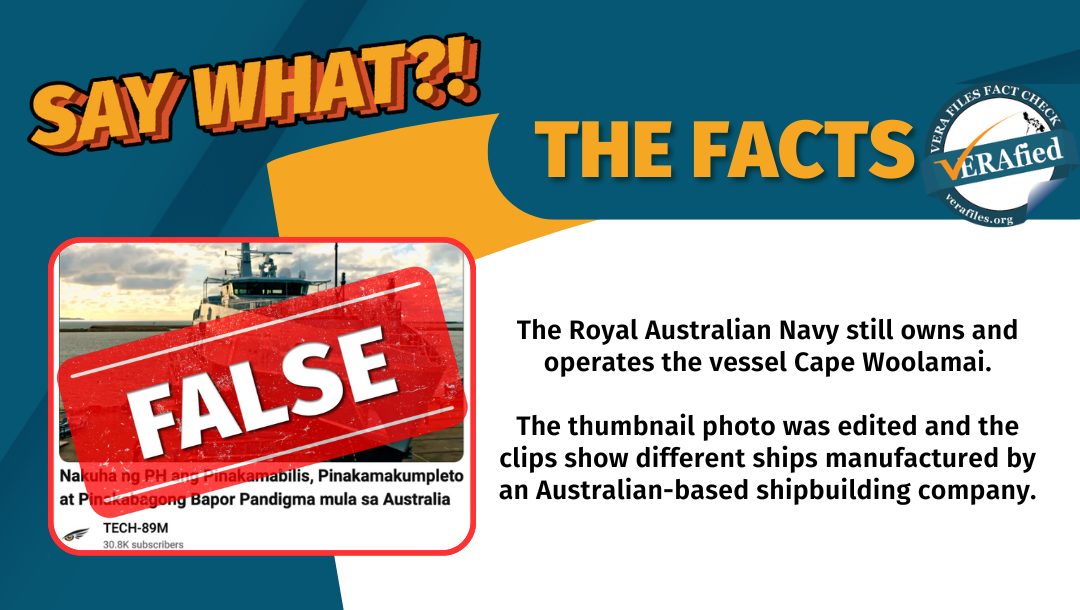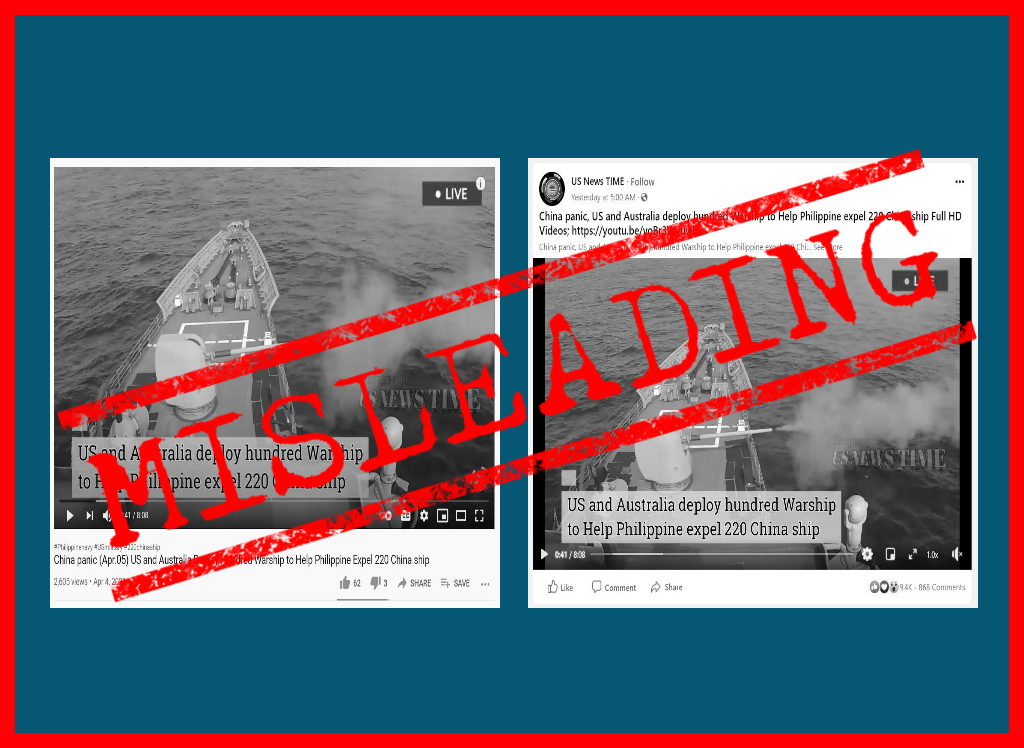A video on YouTube claims that the combined naval forces of the Philippines, United States (U.S.) and Australia sank a Chinese ship. This needs context. The live-fire event was an exercise to test the collective capability of the three to launch strikes from different platforms.
And while the target vessel that was sunk was made in China, it was never part of its military fleet. It was sold to the Philippine National Oil Co. (PNOC) more than a decade ago.
Published on May 8, a YouTube channel published the three-minute video that bore the following headline:
“ACTUAL VIDEO: PINAG BOBOMBA! MATAGUMPAY NA NAPALUBOG! AMBILIS LUMUBOG WASAK WASAK (Bombed! Successfully sank! Quickly sank and in pieces!)”
The following text is also in the video’s thumbnail:
“ACTUAL VIDEO PAG ATAKE. BARKO NG CHINA PINAGBO BOMBA. IYAK ANG CHINA NAG PAPANIC NA. GRABI (sic) WASAK NA WASAK (Actual video of the attack: a Chinese ship was bombed. China is crying and panicking. [The ship] is in pieces).”
As clips of ships being struck by a missile and exploding are shown, the video narrator claims that these three countries attacked a ship “made in China.”
The three countries did not bomb a Chinese Navy vessel. While the said ship in the video was built in China in 2007, it was never used by the Chinese.
The original video shows the decommissioned ship being destroyed off the western coast of Northern Luzon in a May 8 live-fire exercise showcasing the capability of the forces of the Philippines and the U.S during the Balikatan 2024 exercise.
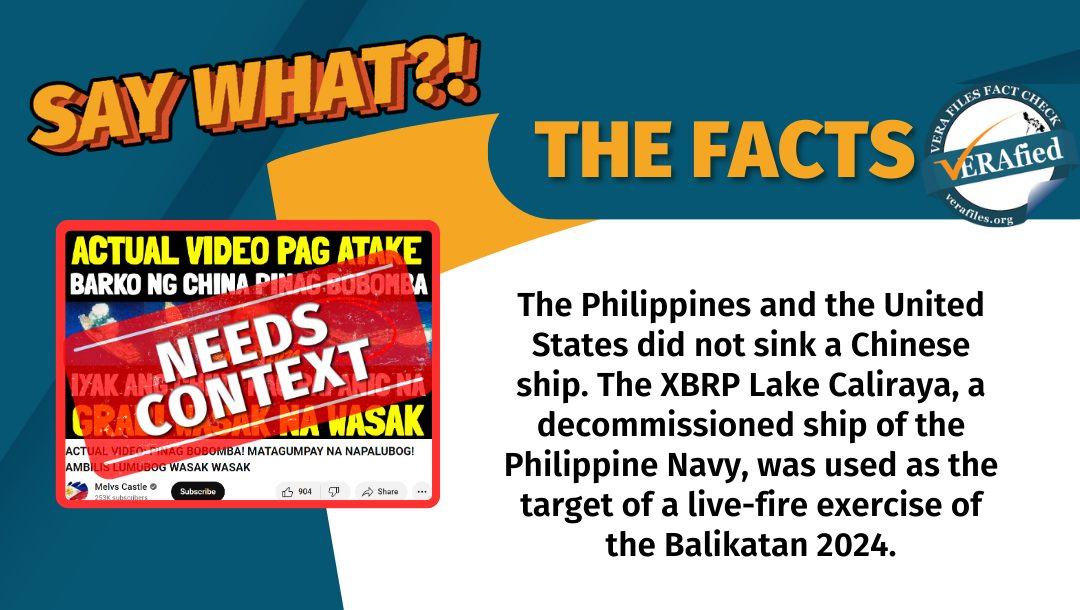
In two May 8 Facebook posts published by Col. Mike Logico, the Balikatan 2024 executive agent said the XBRP Lake Kaliraya, a decommissioned ship, was used as the target for this year’s live-fire demonstration
According to news reports, the XBRP Lake Caliraya was indeed manufactured in China in 2007 and bought by the PNOC before it was subsequently donated to the Philippine Navy. It never sailed under the Chinese Navy.
This video emerged after China revealed further details on what it claims as the unwritten 2016 agreement with the Philippines giving access to South China Sea islands.
YouTube channel Melvs Castle (created on Dec. 2, 2011) published the erroneous video, garnering over 33,000 views and 1,000 online interactions.


